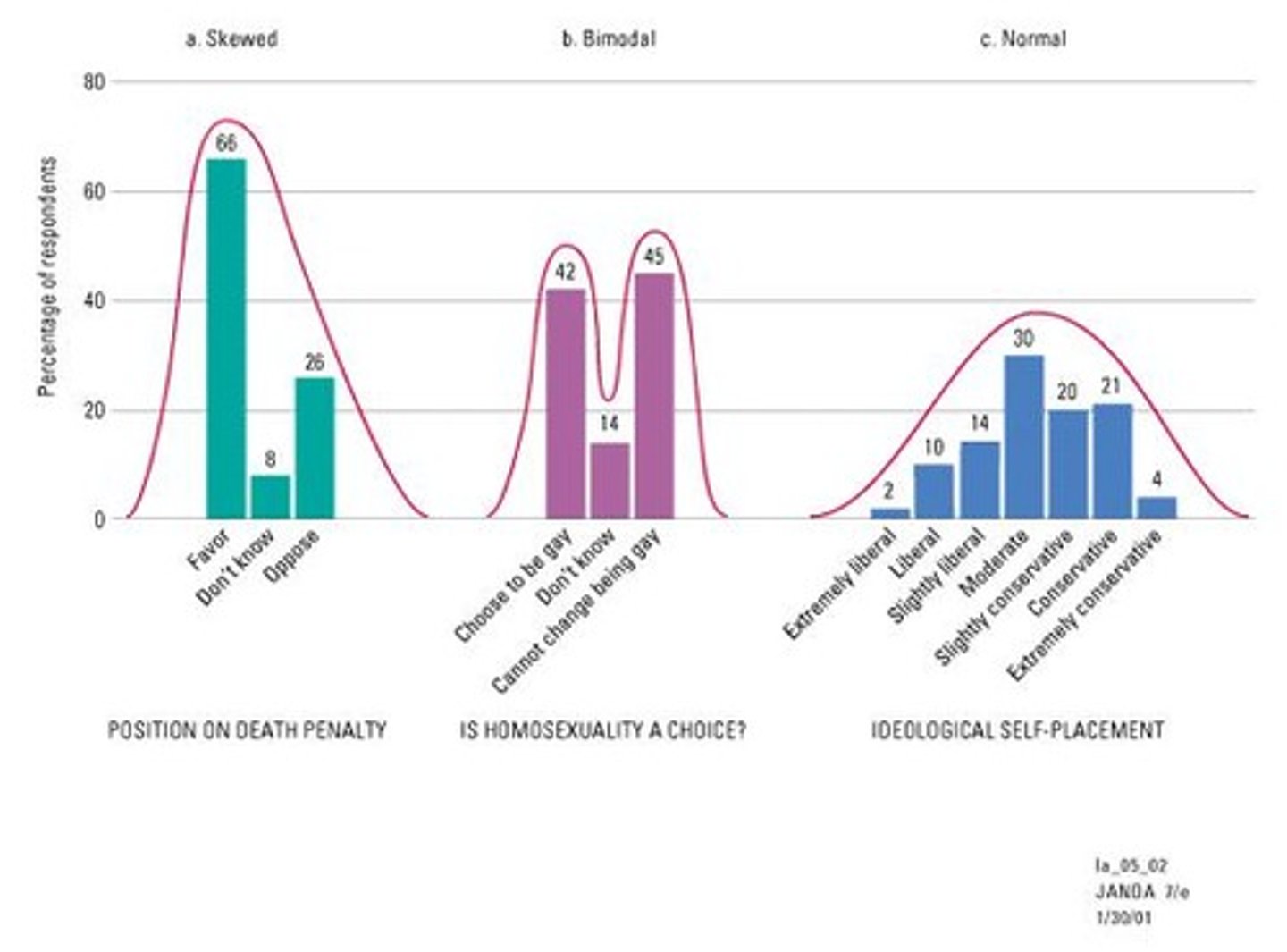Public Opinion, Political Socialization, and Ideological Types in U.S. Politics
1/24
There's no tags or description
Looks like no tags are added yet.
Name | Mastery | Learn | Test | Matching | Spaced | Call with Kai |
|---|
No study sessions yet.
25 Terms
Public Opinion
the collective attitude of citizens on a given issue or question
Majoritarian theory
Government should do what the majority wants
Pluralist model
provides for 'minority publics'
Random sample
a sample that is random but valid
Size of sample
the number of individuals included in a sample
Shape of Distribution
the form of the distribution of data points
Skewed Distribution
one side more dominant in the distribution
Bimodal Distribution
lots on either end, often indicating a touchy or difficult issue

Normal Distribution
bell curve distribution
Stable Distribution
a distribution that doesn't change much over time
Political Socialization
the complex process by which people acquire their political values
Primacy
learned first is learned best
Structuring principle
a concept that acts as a framework for understanding information
Agents of Early Socialization
factors that influence early political learning, such as family and school
Continuing Socialization
occurs throughout life as individuals continue to learn about politics
Socioeconomic Status
the social standing or class of an individual or group, often measured as a combination of education, income, and occupation
Ideological Thinking
the degree of ideological thought in public opinion
Libertarian
a political ideology that emphasizes individual liberty, representing 15% of the U.S. population
Conservative
a political ideology that favors tradition and is represented by 32% of the U.S. population
Liberal
a political ideology that advocates for social equality, representing 23% of the U.S. population
Communitarian
a political ideology that emphasizes community and social responsibility, representing 30% of the U.S. population
Political Knowledge
the understanding of political processes and issues, often higher among men, whites, affluent, and older individuals
Self-Interest
the principle that individuals choose based on what they perceive benefits them
Opinion Schemas
networks of organized knowledge and beliefs that guide a person's processing of information regarding a particular subject
Issue framing
the way politicians define an issue when presenting it to others